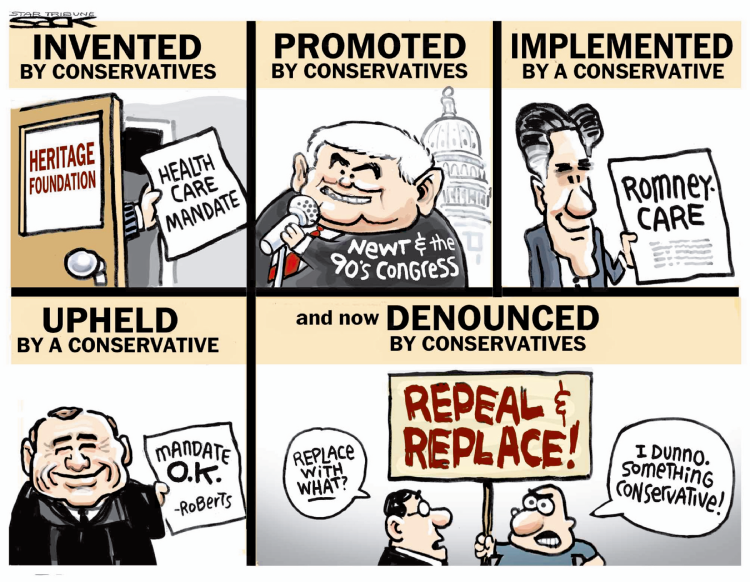
Here is a link to a lengthly Washington Post article on the GOP Platform (dive on in)
While party platforms adopted at the conventions every four years are often lengthy, somewhat idealistic
and can be co-opted by special interests, they are the official set of principles that define a political party.
The Washington Post details the conservative shift of GOP Platforms from the 1960s up to 2012.
Not surprisingly, the watershed moment is 1980 when “The Republican Party declares war on
government overregulation.” By 1992, the platform explains that lowering taxes on the rich will lead to
job creation and declaring an opposition to any increase in taxes. Issues such as abortion and other
faith based topics are virtually non-existent before the 1980s. However, the GOP began to identify with
the Bible Belt religious base of voters. In 1980, the platform called for an amendment outlawing
abortion even though the 1976 platform said abortion was a “moral and personal issue” in which
Republicans disagree. In fact, the most dramatic shift might be from 1960, when Republicans went
from supporting unions, immigrants and the positive role of government to the 1964 platform that
bashed Democrats for being federal extremists and spoke repeatedly of faith. By 2012, the
conservative shift was evident in calls to privatize Medicare and Social Security, while it also
promotes radical ideas such as auditing the Federal Reserve and returning to the Gold Standard.
All that said, platforms represent politics and not governing. The 2012 GOP called for an
amendment to balance the budget which would be fiscally impossible considering the
2018 increase in military spending coupled with huge tax cuts.
- What have been the groups that have pushed the GOP to adopt more conservative policies?
- What were the most important elections that proved to the GOP its strategy was working politically?
- What are the most progressive elements of previous GOP platforms (see article)?